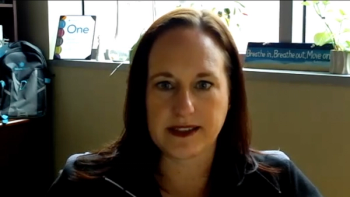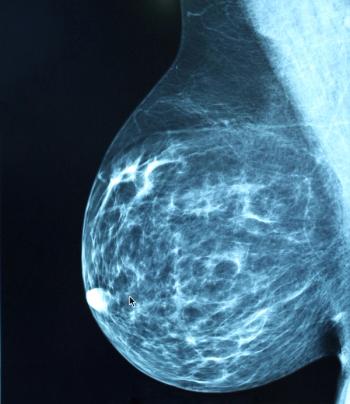
Oncology NEWS International
- Oncology NEWS International Vol 18 No 1
- Volume 18
- Issue 1
Clear communication saves patients from emotional limbo
Oncologists face special patient communication challenges, as cancer treatments are highly complex and prognosis is often grim. For various reasons, important information is often avoided or communicated poorly, leaving cancer patients in emotional limbo.
Oncologists face special patient communication challenges, as cancer treatments are highly complex and prognosis is often grim. For various reasons, important information is often avoided or communicated poorly, leaving cancer patients in emotional limbo.
An excerpt from the Institutes of Medicine executive report, Cancer Care for the Whole Patient, quantified the problem: “At the most fundamental level, many cancer patients report dissatisfaction with the information they are given about their illness.”
Oncology News International spoke with Lidia Schapira, MD, editor of the section on coping at ASCO’s patient-oriented Web site (
“Good information facilitates coping and helps patients make better decisions about their treatment options,” said Dr. Schapira, who is a medical oncologist at the Gillette Center for Breast Oncology at Boston’s Massachusetts General Hospital.
Dr. Schapira explained that cancer patients and their families will inevitably seek information from outside sources, such as the Internet, “so it behooves the oncology community to build patientcentric, properly vetted information sources. It is really up to the individual oncologist to respect and acknowledge the patient’s right and need to be duly informed.”
Specific communication techniques can help oncologists improve patient interactions. First, information needs should be assessed on a patient-by-patient basis. “Ascertain the level of information your patient wants. For instance, ask ‘Do you want to know every detail, down to statistics and scientific literature, or do you prefer a more broad-based discussion?’,” she suggested.
Next, it’s important to create a rapport. It’s not enough to just ask the patient questions about her informational needs; taking the time to actually listen to the answer is also vital, Dr. Schapira stressed.
She also emphasized that cancer patients are often in an overloaded emotional state that makes it difficult to fully absorb critical information. “It may be better to break the conversation into several sessions,” Dr. Schapira recommended. “You should tailor the delivery of the information as if you’re dosing a powerful medication.”
This is particularly true if bad news needs to be delivered. Oncologists dread telling their patients that curative treatment options have run out, so the instinct to protect may unwittingly lead to withholding information, she pointed out.
“Data show that patients with a good prognosis want to know everything, while those with a poorer outlook don’t want their prognosis laid out in explicit detail,” she explained. But if the prognosis is especially grim with limited life expectancy, the patient needs to know what lies ahead. “The kindest thing to do is talk in installments over time. It gives the patient the opportunity to process the information and ask questions.”
Dr. Schapira noted that oncologists tend to lecture patients. But rushing patients through the discussion process won’t gain their trust, which is essential to establishing a meaningful dialogue.
Again, Dr. Schapira stressed the need for observation and active listening. “If a patient doesn’t ask a single question, that’s a red flag. Invite the patient to tell you what they’ve understood.”
“The most important thing is to show the person that you care. Let the patient know that you’ve reviewed the records, you understand the clinical issues,” she added. “Talk about working together collaboratively. Set an agenda; bring your expectations in line. Only then begin discussing the treatment options.”
Articles in this issue
about 17 years ago
UK health board rejects multiple myeloma drugabout 17 years ago
Phase II often signals end of line for trialsabout 17 years ago
Exiqon offers relapse test for colon cancerabout 17 years ago
Medicare offers broader coverage for PET scanabout 17 years ago
Diet high in fat escalates risk of ovarian cancerabout 17 years ago
ASCO favors routine KRAS test in colon caabout 17 years ago
Aid in dying wins approval if patient gives lethal doseNewsletter
Stay up to date on recent advances in the multidisciplinary approach to cancer.



































